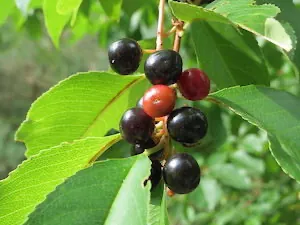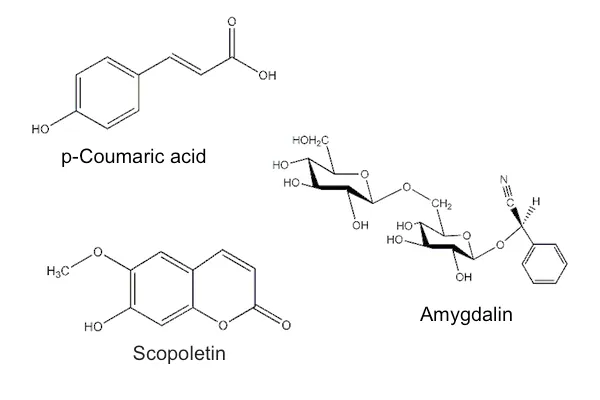Overview of Black Cherry
Scientific Name: Prunus serotina
Order: Rosales
Family: Rosaceae
Black cherry is common in Eastern North America. Sometimes black cherry is known as wild cherry. Do not confuse black cherry with the well-studied tart cherry.
Strong:
insufficient informationGood:
insufficient informationPromising:
insufficient informationConflicting (Unclear):
insufficient informationLimited Evidence:
insufficient informationNo Evidence:
insufficient informationNo Clinical Research:
All other conditions.- Side effects have not been studied for black cherry.
- Avoid or contact a licensed healthcare practitioner, if you have diabetes.
- Cyanide poisoning from black cherry is unlikely because of the low content of cyanogenic glycoside in the fruits.
- Some people may be allergic to black cherries.
There is not enough research on the use of supplements containing black cherry during pregnancy and breast-feeding, so consult a licensed healthcare practitioner before use or avoid use.
Major:
insufficient informationModerate:
insufficient informationPotential:
insufficient informationBlack cherry is not a "drug", the best doses have not been thoroughly established. Make sure to follow the specific product instructions and take as directed on the label or consult a licensed healthcare practitioner before use.
1. Ballmer-Weber BK, Scheurer S, Fritsche P, Enrique E, Cistero-Bahima A, Haase T, Wüthrich B. Component-resolved diagnosis with recombinant allergens in patients with cherry allergy. J Allergy Clin Immunol. 2002 Jul;110(1):167-73. doi: 10.1067/mai.2002.125601. PubMed PMID: 12110837. 2. Derkenne C, Lamblin A, Jost D, Tourtier JP. Pseudohyperglycaemia in a comatose patient after picking cherries. BMJ Case Rep. 2016 Oct 28;2016. doi: 10.1136/bcr-2016-218141. PubMed PMID: 27793876; PubMed Central PMCID: PMC5093346. 3. Gruenwald J, Brendler T, Jaenicke C, editors. PDR for herbal medicines. 4th ed. Montvale, NJ, USA: Thomson Healthcare; 2007. 4. Afendi FM, Okada T, Yamazaki M, Hirai-Morita A, Nakamura Y, Nakamura K, Ikeda S, Takahashi H, Altaf-Ul-Amin M, Darusman LK, Saito K, Kanaya S. KNApSAcK family databases: integrated metabolite-plant species databases for multifaceted plant research. Plant Cell Physiol. 2012 Feb;53(2):e1.

